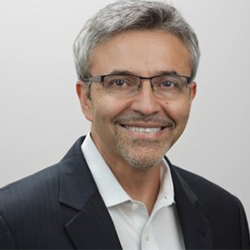Clinical Researcher—December 2019 (Volume 33, Issue 10)
SCIENCE & SOCIETY
Al O. Pacino
Clinical research leaders are calling for improvements to the current system. Standardized clinical practices may be answer.
Across the globe, collaboration between healthcare and research organizations is coming head-to-head with rapidly changing regulations. As the need for collaboration increases, independent and institutional members are struggling to streamline their delivery, distribution, and implementation of initiatives across diverse locations.
At the same time, changing regulations are complicating the process of ensuring that these initiatives meet the necessary requirements, especially in developing countries. These issues often strain clinical trial sites’ limited resources and prolong the market entry of valuable new drugs and medical devices.
Many organizations have found that the standardization of education, certification, and other processes can increase efficiency, reduce time to market, and improve patient outcomes. When combined with real-time connectivity, moreover, access to standardized information can improve the quality of care.
Standardizing Education to Improve Diagnosis
Hospital La Paz Institute for Health Research (IdiPAZ) in Madrid, Spain and its 48 research groups promote high-quality translational research at basic, clinical, epidemiological, and health services levels. In 2017, IdiPAZ determined there was an international need for paramedics and ER staff to quickly and correctly diagnose the severity of stroke in patients sent to stroke care facilities, to avoid overloading staff and to improve care.
In response, IdiPAZ (in close collaboration with the Madrid Stroke network) created the Madrid-DIRECT scale—a standardized pre-hospital scale for measuring of the probability of mechanical thrombectomy. This scale allows emergency services to refer a patient directly to the corresponding Stroke Center based on clinical examination.
Based on an observational study coordinated by IdiPAZ and the Madrid Stroke Network, the Madrid-DIRECT scale provides valuable guidance about patients’ suitability for endovascular treatment based on their pre-hospital evaluations. The organization plans to distribute this standardized scale and others in more than 167 countries to ensure site quality assurance and transparent management of professional competencies, particularly in underdeveloped countries.
Standardization to Improve Regulatory Outcomes
Site managers and staff are finding standardization helps streamline the approval process when facing regulatory roadblocks and limited testing time. They also realize that investing in standards creation improves accountability between sites and the sponsors or contract research organizations (CROs) with which they work.
Many sites in Africa are intriguing to sponsors and CROs, but regulatory hurdles make them hesitant to work with sites in the region. Standardization of well-known requirements, such as medical scales of assessments, can help prove competency to regulators. For African research sites, standardized assessments also improve their candidacy for grants and university and government initiatives by demonstrating research feasibility and transparency.
Centralized and standardized clinical education can advance the goal of reducing educational inequalities throughout the world while improving transparency and human subject protections. Ultimately, industry-accepted guidelines, best practices, and standards of care for providers and investigative sites can streamline the clinical trials process, potentially bringing more facilities into the industry ready to “hit the ground running” with research. Working closely with accreditation organizations could make meeting regulatory requirements become more manageable.
Conclusion
A global infrastructure that equips investigative sites and healthcare organizations with guidelines, best practices, and globally accepted standards will bring developed and undeveloped nations alike into a global healthcare and clinical research ecosystem. It’s a vital first step toward a world in which no patients, regardless of where they live or their social status, are left behind. Using standardization as a tool, research professionals can gain more time to deliver excellent patient care while contributing to the global effort to accelerate life-changing innovation.

Al O. Pacino is President at BlueCloud® by HealthCarePoint Professional Collaborative Networks, based in Cedar Park, Texas, and a former member of the Editorial Advisory Board for ACRP.



